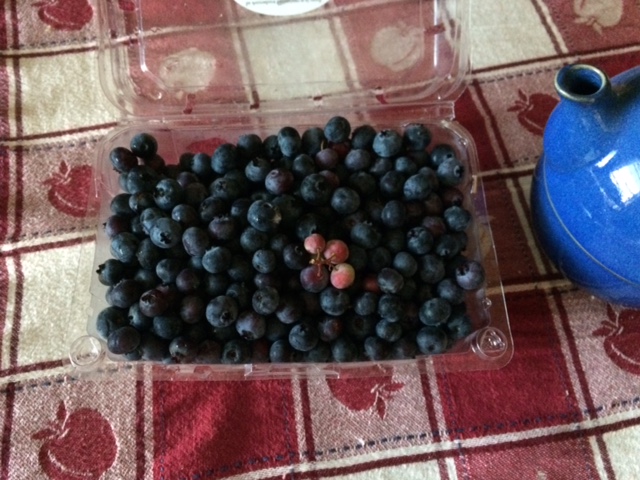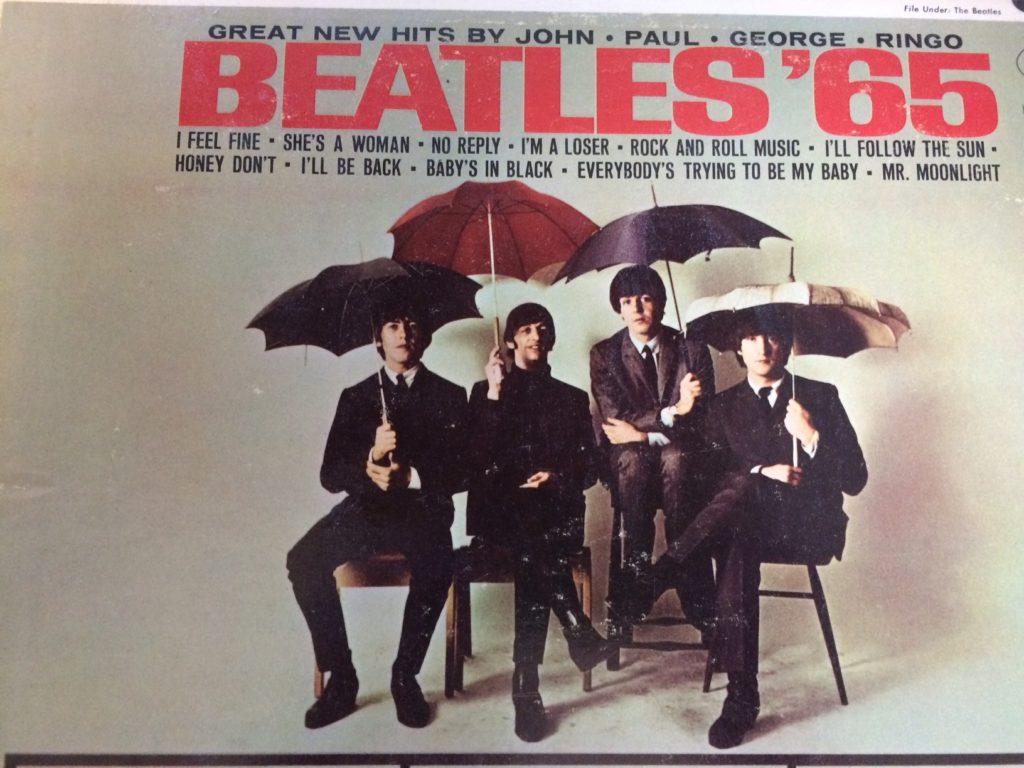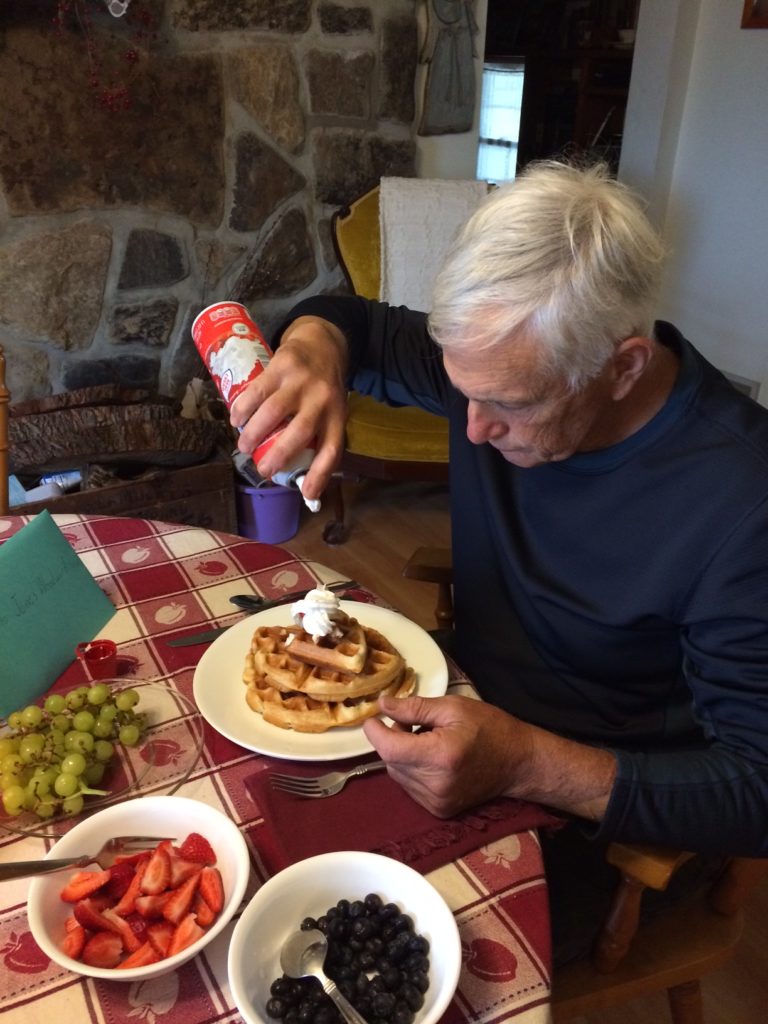Blueberries, politics & letting go of perfectionism

On this perfect summer day – low humidity, bright sun –I had a choice. Do I spend the afternoon with my blueberries, ready for picking, or listen to Robert Mueller’s testimony before Congress?
Hearing the opening statements, it wasn’t a hard choice.
I was ready to condemn the President when I heard the Democratic opener and to defend him following the Republican response. Obviously, I’m easily swayed by a good argument. But seriously, would hearing more have added to either my IQ or sense of calm?
Deciding I didn’t want to waste an ideal summer afternoon, I switched off Lester Holt, stepped into the backyard and gingerly crawled through a small screened doorway into our netted patch.
Meanwhile, millions of Americans watched senators interrogate Mr. Mueller, who seemed like a tired, honorable man. After hours of questioning, I imagined him muttering under his breath, “I volunteered for this? I could be picking berries somewhere outside the beltway right now!”
Berry by berry, my mind drifted into calmer waters. I recalled gathering blueberries on July afternoons with Mother and Grandma Wesp on our annual walk around Lake Kittatinny in rural northern New Jersey. My grandparents rented the same log cabin there for close to 40 years.
Wild berries grew on untended bushes on the back side of the lake. They were small and tart. When Grandma served the fruit of our labor on cereal with creamy milk the morning after our hike I consumed mine cheerfully, part of the Great Berry Picking Adventure.
This summer I posted pics on Facebook of our abundant harvest of mulberries, raspberries, wild blackberries and blueberries. A classmate said his grandparents tried to convince him as a child that berries were sweeter if picked early in the morning, a whimsical way to get kids out the door.
Earlier this month a couple sisters of my generation looked surprised when I told them I’d had fun in the berry patch that morning. “It wasn’t fun when Dad told us to not come home until we filled a five-gallon bucket!” one said, her sister nodding.
I realized again that I’ve had an easy life.
The most significant job I had as a kid was completing my homework each night, which I did diligently. There was never a question if it were done, with one exception. The night the shaggy-haired Beatles first appeared on the Ed Sullivan show my dad switched off the TV on the pretext I hadn’t finished my homework.

I was in tenth grade, almost 16, and wise enough to know Daddy wasn’t worried if my English assignment would be completed; he was uptight over these British invaders and the explosion of Beatlemania across America. I still have my Beatles albums, by the way.
I now have the job of picking fruit, except on hot humid days when chemo and outdoor activity join forces to cause light-headedness and nausea.
I’m working on not being bothered about imperfect berries. I try to select shiny, dark blue ones but inevitably red ones are in my basket, too. They haven’t fully ripened yet and tend toward the sour side. My father-in-law taught me that when I first began picking berries in the family’s backyard.
Ever since, if I suspect someone is peeking at my picking I bury the red ones, ashamed of my inability to discriminate ripe and unripe fruit. I’m not a perfectionist about much, but I’d like to be considered an accomplished berry picker.
During the weekend in June that I spent at Bethany Retreat Center we talked about letting go of perfectionism. None of us are perfect at anything so it’s time to stop asking self-destructive questions like, “What will they think?”
Speaker Anne Kertz Kernion suggested we chose to re-wire our brains and strive for self-acceptance, instead. The key is believing in our worthiness as God’s beloved children.
If He accepts me with all my messes, can’t I do the same?
I’d like to see schools, churches and scouts teach kids basic skills of self-kindness, every bit as vital as other types of self-protection. We cling too willingly to the common human experience of feeling bad about ourselves. Jesus spoke indirectly about this when He said, “Love thy neighbor as thyself.”
Self-compassionate people are less stressed, happier, better able to accept their own weaknesses and not fall apart when they receive critical feedback from others.

There is peace in the assurance that God loves me unconditionally. That’s how I love my kids, their spouses and our grandchildren. I’m freezing some of my less-than-perfect blueberries now, hoping they will enjoy warm berry syrup on their dad’s waffles when Christmastime rolls around.
I know I will.
All will be well.
Texting Thru Recovery/Indiana Gazette
